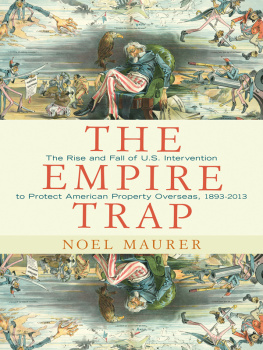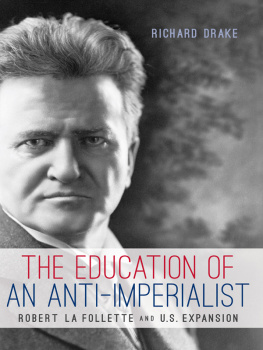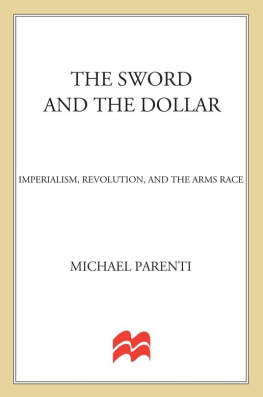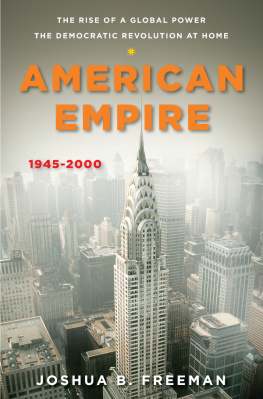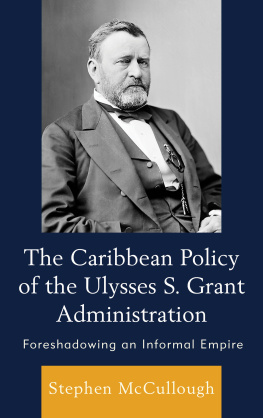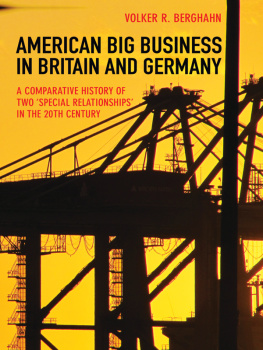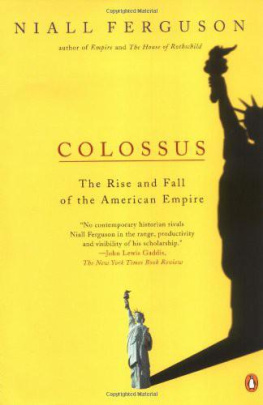
THE EMPIRE TRAP
THE EMPIRE TRAP
THE RISE AND FALL
OF U.S. INTERVENTION TO PROTECT
AMERICAN PROPERTY OVERSEAS,
18932013
Noel Maurer
PRINCETON UNIVERSITY PRESS
Princeton and Oxford
Copyright 2013 by Princeton University Press
Published by Princeton University Press, 41 William Street,
Princeton, New Jersey 08540
In the United Kingdom: Princeton University Press, 6 Oxford Street,
Woodstock, Oxfordshire OX20 1TW
press.princeton.edu
All Rights Reserved
ISBN: 978-0-691-15582-1
Library of Congress Control Number: 2013933598
British Library Cataloging-in-Publication Data is available
This book has been composed in Sabon and Trade Gothic
Printed on acid-free paper.
Printed in the United States of America
1 3 5 7 9 10 8 6 4 2
CONTENTS
ACKNOWLEDGMENTS
It is wonderful to have the opportunity to pursue the answers to a big and puzzling question. This book may address a big question but it grew from two small seeds. The first was a case I wrote with Aldo Musacchio in 2005 about Argentina. The case introduced me to the vast legal infrastructure designed to protect foreign investors against expropriation. The second was a discussion in a California caf with Kris Mitchener about his work (with Marc Weidenmier) on the economic impact of the Roosevelt Corollary. Kris and I never wrote the paper we talked about, but the seeds of the idea that became this book had been planted. For that, I owe them both a debt of thanks.
Several of the ideas in this book were originally presented in various working papers. I owe thanks to my coauthors on one of those working papers: Faisal Ahmed and Laura Alfaro. I also owe thanks to the participants in the workshops and conferences at which I presented those papers, including Columbia University, the Fletcher School, Rutgers, UCLA, the Zicklin School of Business, the London School of Economics, and the Council on Foreign Affairs. The feedback received at those conferences proved invaluable. I owe particular debts to Michael Bordo, Leah Boustan, Jonathan Brookfield, Alan Dye, Susan Franck, Naomi Lamoreaux, Carolyn Moehling, Lilach Nachum, Clint Peinhardt, Lauge Poulson, Jeswald Salacuse, Rajeev Sawant, Mark Wasserman, Eugene White, Mark Wright, and Jason Yackee.
This book would not have been possible without ample support from the Harvard Business School. I would like to thank the dean of HBS, Nitin Nohria, for the generous research support given during the writing and research process. In addition, many of my colleagues at Harvard, on both sides of the river, gave support and assistance above and beyond the call of duty. Several read and commented upon entire drafts of the manuscript: Rawi Abdelal, David Moss, James Robinson, Gunnar Trumbull, Dick Vietor, and Lou Wells were particularly helpful. Rawi Abdelal provided very useful advice about the books overall theme and David Moss gave invaluable feedback concerning the archival evidence in the first few chapters. Lou Wells deserves special mention: he read multiple drafts and provided detailed comments. This book would have been far different, and far lesser, without his help. In addition, Niall Ferguson was always willing to discuss ideas and helped focus many of the arguments. Gustavo Herrero gave irreplaceable assistance for my field research in Argentina. Zac Pelleriti and Tremana White provided support in Boston, without which this book would have been impossible to complete.
Outside Harvard, I owe particular debts to Stephen Haber and Suresh Naidu. Both gave amply of their time and intellect. They helped me solve several puzzles that might have proved otherwise intractable and I am in debt to both of them. I would also like to thank Leticia Arroyo and Francisco Monaldi for their feedback and support. In addition, this book would have been impossible without superlative research assistance from Caitlin Anderson, Andrew Novo, and Carlos Yu.
Numerous people gave generously of their time to help make this book happen. I would in particular like to thank Mark Bellis, Beth Clevenger, Seth Ditchik, Will Hively, and Theresa Liu. I would also like to thank the anonymous referees from Princeton University Press for their incisive and very helpful reviews of an earlier draft of the book. Any flaws and errors that remain are, of course, wholly my own.
I have dedicated this book to my immediate family for their unflinching and unfailing support. My wife, Amma Nzinga Maurer, read the entire manuscript on more than one occasion and never failed to keep me motivated and on track. Our little boy, Seretse Hilario Maurer, came into the world as I was finishing the manuscript and never failed to provide me with immense amounts of joy as he discovered all the neat new things in this wide wide world. Finally, my father, Leon Maurer, passed away in 2011: he never got a chance to read this book, but I like to think that it honors his memory.
THE EMPIRE TRAP
one
Introduction
An extraordinary act in the history of the civilized nations, without precedent, without possible justification, a barbarous act because it is an attack on the most rudimentary principles of international law, an ignoble act because it is the fruit of an immoral and cowardly collusion of force and betrayal.
Cipriano Castro, 1902
This is the great threat, the biggest threat that the planet faces today. The Yankee empire.
Hugo Chvez, 2010
In 1900, Venezuelan president Cipriano Castro seized properties belonging to the American asphalt trust. Venezuelan troops forcibly ousted the trusts employees and occupied its facilities on the shores of Lake Bermdez, one of the largest natural tar pits in the world. The McKinley administration protested, and the Navy Department ordered three warships to the scene, but the United States did not intervene. Dissatisfied with the official response, the asphalt trust immediately set out arming a rebellion to overthrow Castros government. American corporate support for the rebels led Castro to seize British-flagged vessels carrying weapons for Castros opponents. That in turn provoked a confrontation between Castro and the United Kingdom, which caused the German government to get involved on the British side. The Anglo-German alliance shelled La Gaira, sank two Venezuelan vessels, blockaded several ports, and threatened invasion. The U.S. government was dragged back into the dispute, where it brokered a state-to-state settlement at the International Tribunal at the Hague. The imbroglio was confused, politicized, and violent. But it was not unique. From the confrontation between the Hawaiian sugar planters and Queen Liliuokalani in 1893 to the dollar diplomacy of the 1920s, the U.S. government found itself drawn again and again into disputes between American investors and foreign governments over their property rights.
In 2007, Venezuelan president Hugo Chvez seized properties belonging to the American oil giants ExxonMobil and ConocoPhillips. When asked, a State Department official stated, The government of Venezuela, like any other government, has the right to make these kinds of decisions to change ownership rules. The standard has always been that we want to see them meet their international commitments in terms of providing fair and just compensation. The oil giants then sued Venezuelas state-owned oil company at the International Chamber of Commerce (ICC) and the Venezuelan government at the International Centre for Settlement of Investment Disputes (ICSID). The U.S. government was not involved in the suits. The ICC decided that Venezuela owed ExxonMobil $907.6 million in compensation. Chvez blustered, but paid. The dispute was legalistic and relatively orderly. But it was not unique. By 2007, it was perfectly normal for American companies to sue foreign governments in international tribunals over violations of their perceived property rightsand, at least sometimes, to win and to collect.
Next page
